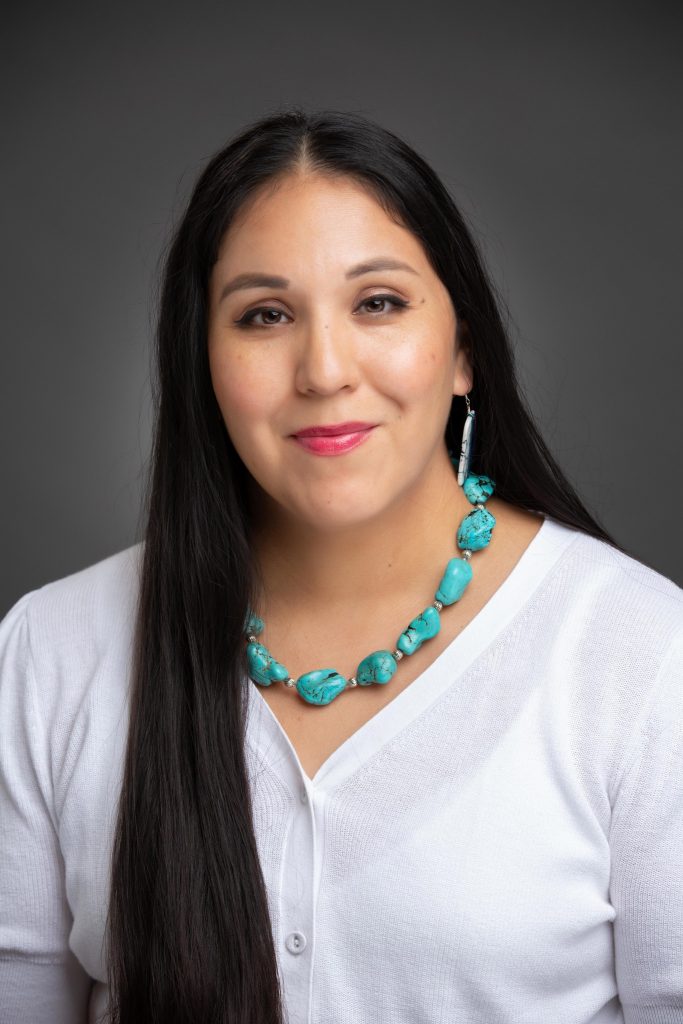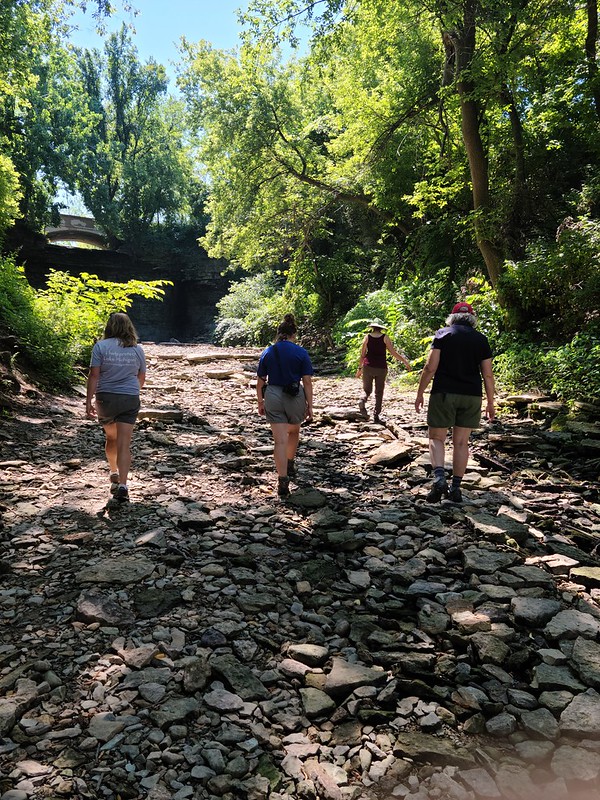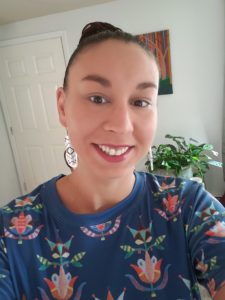Margaret Ellis: Bringing a voice back to the land

Margaret Ellis, First Nations Graduate Assistant, Wisconsin Sea Grant. Submitted photo.
Margaret Ellis is the latest person to fill the First Nations Graduate Assistantship with Wisconsin Sea Grant and the University of Wisconsin-Green Bay’s Cofrin Center for Biodiversity. Ellis has all the qualifications that look good on paper, plus others that are just as meaningful.
Ellis has a master’s in global Indigenous nations studies with an environmental focus from the University of Kansas and is working toward a Ph.D. in education at UW-Green Bay in First Nations entrepreneurial and small business operations.
“I have the skills; I have the knowledge. My master’s degree was years ago, but you know, I’ve continued to live my life in a certain way that reflects a responsibility to earth and water,” Ellis said.
She also has connections to the Wequiock Creek Natural Area, a 76-acre property with forests, wetlands and prairie she will work on along the lower bay shore area of Green Bay. The area is being restored and is culturally significant to the Oneida, Potawatomi, Ho-Chunk and Menominee nations. Ellis, a member of the Oneida Nation, has been visiting Wequiock Creek since she was a child.
“It was a free place to go and it was beautiful,” she said. “There’s a little waterfall there and so my family would always go there to picnic or just walk around. I was excited to find that connection to the project. I want to bring a voice back to that land and reconnect those nations with the Wequiock area.”
In addition to continuing the tradition of organizing a spring tobacco blessing, Ellis will be helping the Cofrin Center to develop interpretive signage and plant signage featuring Indigenous viewpoints and language. “It’s really about supporting restoration efforts for the natural area and ensuring that the Indigenous knowledge and voice are represented by all the nations that once used the land,” she said.

Wisconsin Sea Grant staff members walk the dry bed of Wequiock Creek. Image credit: Marie Zhuikov, Wisconsin Sea Grant
In between her degrees, Ellis co-founded Kenco Tribal Marketing Initiative, a full-service marketing and procurement agency serving tribal businesses, plus she owns Mirax, LLC, an apparel business for nonprofits and Native nations. For her Ph.D. dissertation research, she is building off this to create a small business model that is based on the Oneida Thanksgiving Address. Ellis explained that the address gives thanks to all the elements that are on Earth and in the cosmos – water, the sun, plants and the animals. “I want to support small businesses in creating something that keeps those elements in mind. It’s all about sustainability and conscious consumerism,” Ellis said.
Through her business success, academic achievements, and community grassroots efforts Ellis achieved the National Center for American Indian Enterprise Development 40 under 40 Award, which recognizes Native American citizens for outstanding leadership and community contributions.
Julia Noordyk, Wisconsin Sea Grant water quality and coastal communities specialist, is Ellis’s supervisor. She’s thrilled that Ellis accepted the position.
“Margaret is such an impressive person. She has a lot of positive energy that she’s willing to share. She’s determined to bring the voices of Indigenous women to the table and integrate business practices that protect water resources. I am hopeful that through this position, Sea Grant can help support her academic and professional goals,” Noordyk said.
Ellis recently posted an announcement about her Sea Grant graduate assistantship on social media. She said, “The post just went crazy! I had so many shares, comments and likes. It made me think it’s a sign that I’m in the right place.”
The post Margaret Ellis: Bringing a voice back to the land first appeared on Wisconsin Sea Grant.News Releases | Wisconsin Sea Grant
News Releases | Wisconsin Sea Grant
https://www.seagrant.wisc.edu/news/margaret-ellis-bringing-a-voice-back-to-the-land/?utm_source=rss&utm_medium=rss&utm_campaign=margaret-ellis-bringing-a-voice-back-to-the-land

